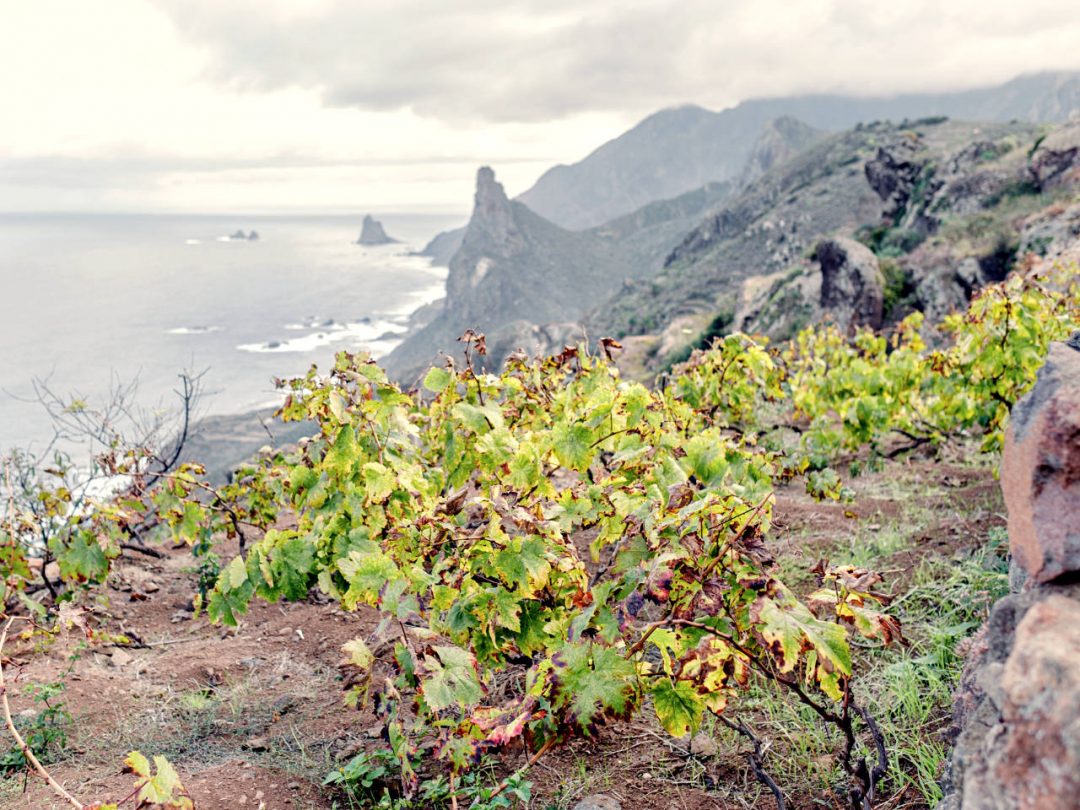
By definition, a single vineyard wine is a type of wine produced from grapes cultivated in a specific plot of a vineyard. The idea behind these wines is to highlight the distinctive characteristics of a specific location, capturing the uniqueness of the terroir (soil, climate) and its interaction with the vineyard and grape variety.
Single vineyard wines are the current trend and the response to an increasingly demanding consumer who avoids an increasingly globalized and industrialized wine world driven solely by the commercial interests of large wineries.
In recent years, producers committed to the excellence and exclusivity of these vinifications have shifted the focus of their work to the individual plot or estate. Now, what is crucial for the future of a wine doesn’t take place in the winery; instead, it happens in the vineyard, with everything revolving around the soil profile. When a winemaker finds what they are looking for in a specific plot, they work towards their perfect wine specifically from that defined sector, leaving out everything else.
Canary Islands, “A Paradise for Single Parcel Wines”
From its origins, the wineries and viticulturists that make up the DOP Canary Islands – Canary Wine have always advocated for highlighting the uniqueness of a viticulture with centuries of history, shaped into a true “Unique Viticultural Paradise,” where, if we had to define it in a single word, it would undoubtedly be diversity.
Due to their volcanic origin, the topography of the islands is highly diverse, characterized by elevated mountains in relation to their surface area. With the exception of Lanzarote and Fuerteventura, all islands have significant central peaks, from which steep slopes descend, segmented by deep ravines until reaching the sea. This arrangement of the terrain and their location in the subtropical zone in the middle of the Atlantic Ocean, under the influence of the Trade Winds, gives them a great variety of microclimates, which is another factor to consider from a viticultural perspective.
Undoubtedly, we could affirm that the vineyards of the Canary Islands are the oldest in Europe, as they were never affected by the devastating phylloxera plague that affected vineyards worldwide in the late 19th century. The absence of this lethal plague in the archipelago’s vineyards has allowed the Canary Islands to preserve a true “Garden of Varieties” with more than 80 different ones, of which 25 are exclusive worldwide.
The characteristics of all these grape varieties are heavily influenced by their origin in terms of soil, microclimate, altitude, orientation, training system, and, of course, the interpretation of the winemaker under a concept of traditional, ecological, or biodynamic viticulture. Thus, we can find monovarietal references or the most original combinations, opening up an extensive field for the production of unique and exceptional “Single Parcel Wines.”
Reflecting Diversity and Uniqueness: The specifications of the Canary Islands DOP.
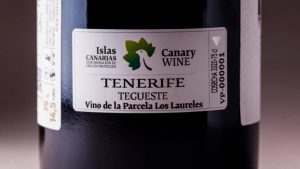
However, all this new world full of possibilities that opens up around Single Parcel Wines would lose value for a demanding new consumer of quality wines without a regulatory framework that highlights the singularity of the future Canary Wines.
Therefore, since 2021, the Canary Islands DOP modified its specifications with new wine typologies (Regional Wines, Island Wine, Municipal Wine, and Single Parcel Wine) and their parameters, adapted to the current regulations of the European Union.
With this, two main objectives were achieved. The first is to provide a working tool to our viticulturists and winemakers affiliated with our Designation of Origin that highlights the value of their wine productions. And second, to provide the consumer with more information on the wine they are consuming through labeling, adding greater added value to Canary Wines.
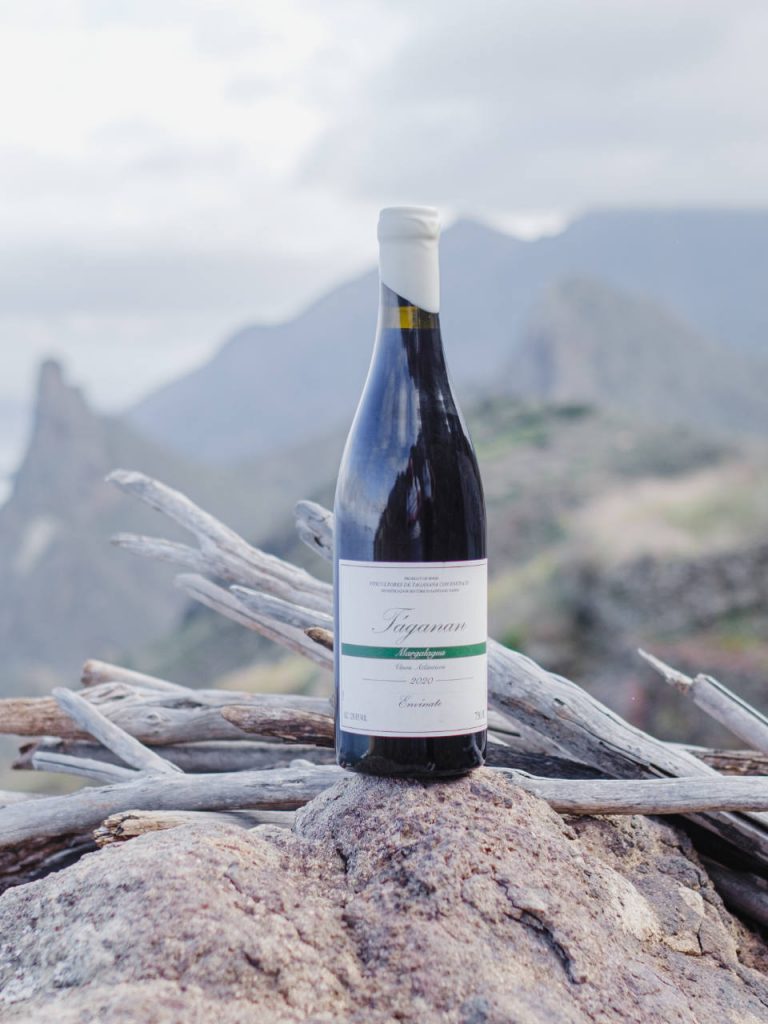
TÁGANAN
(Envínate)
Climate: Atlantic with the influence of the trade winds.
Soil: Volcanic red basalt soils.
Varieties: Listán Negro, Negramoll.
Parcela Margalagua
Taganana (Tenerife)
The Margalagua Parcel is located in Anaga, in the village of Taganana. Its centenary vineyards have the particularity of having a soil of red volcanic basalt that is rich in iron and degrades over time. Varieties such as Listán Negro, Negramol, and, to a lesser extent, local white varieties are cultivated at an altitude between 300 and 350 meters. This results in a unique wine that conveys the Atlantic character of the area.
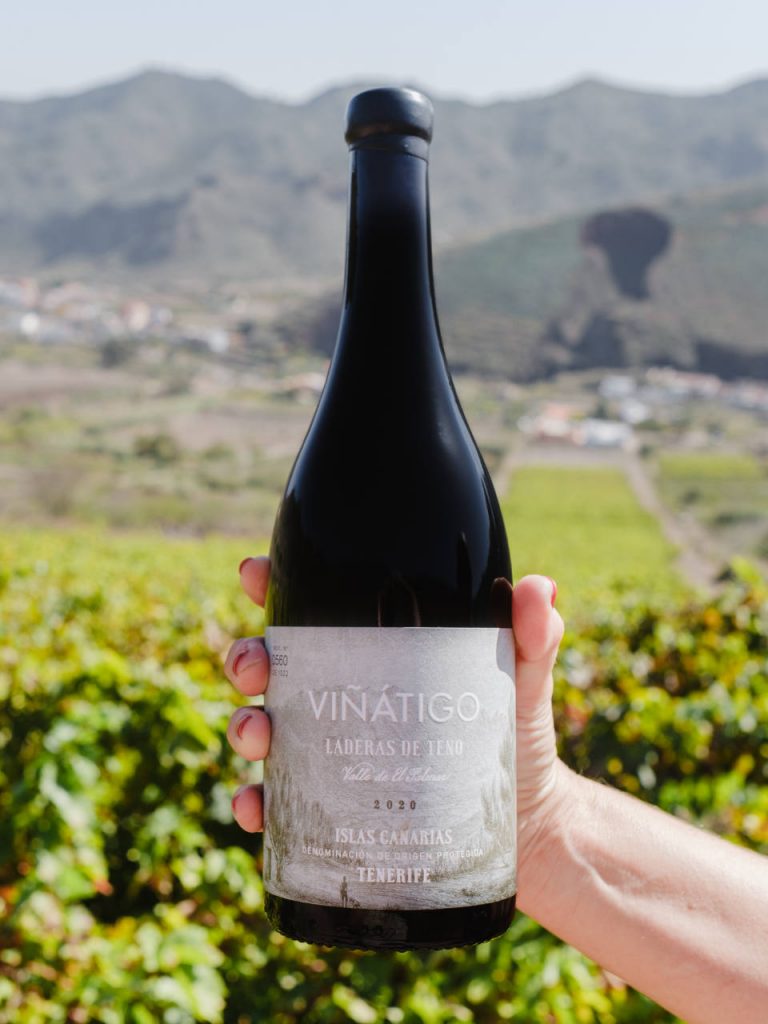
LADERAS DE TENO
(Bodegas Viñatigo)
Climate: Vineyards are influenced by the Trade winds coming from the North Atlantic.
Soil: The clays coexist in a balanced ecosystem with a large contribution of stones, generally basaltic.
Varieties: Tintilla, Baboso Negro, Vijariego Negro y Bastardo.
El Palmar
Buenavista del Norte (Tenerife)
The El Palmar Valley is a suspended valley at an altitude of 600 meters above sea level, open to the northwest of the island and strongly influenced by the trade winds from the north of the Atlantic Ocean, bringing freshness to our climates and wines.
These winds gently caress the slopes of the valley up to almost 1,000 meters above the Teno Massif, one of the oldest geological formations on the island.
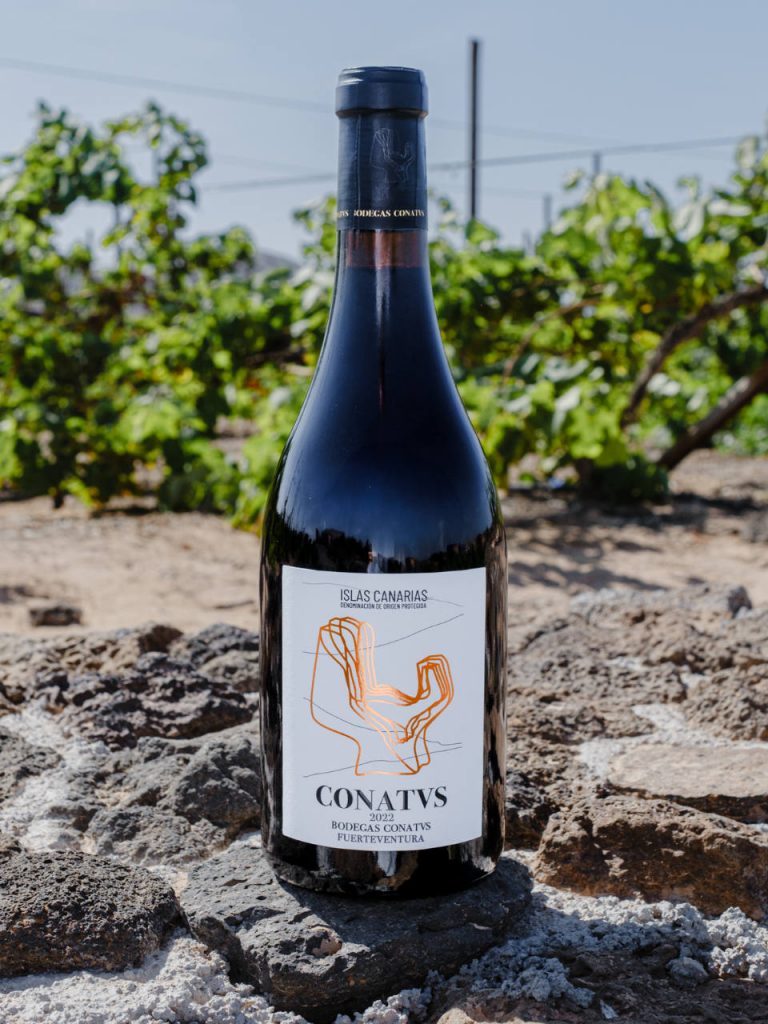
CONATVS
(Bodegas Conatvs)
Climate: Soft and cool.
Soil: Limestone rock soils.
Varieties: Listán Negro, Listán Prieto, Tintilla.
Parcela de Lajares
La Oliva (Fuerteventura)
The Lajares plot is situated at an altitude of 70-80 meters above sea level. Located in the northwest of the island, it features volcanic soil with a significant saline content, imparting to the wine that distinctive touch of salinity and minerality characteristic of Fuerteventura. The area has a cool climate compared to other parts of the island, thanks to the constant presence of the trade winds.
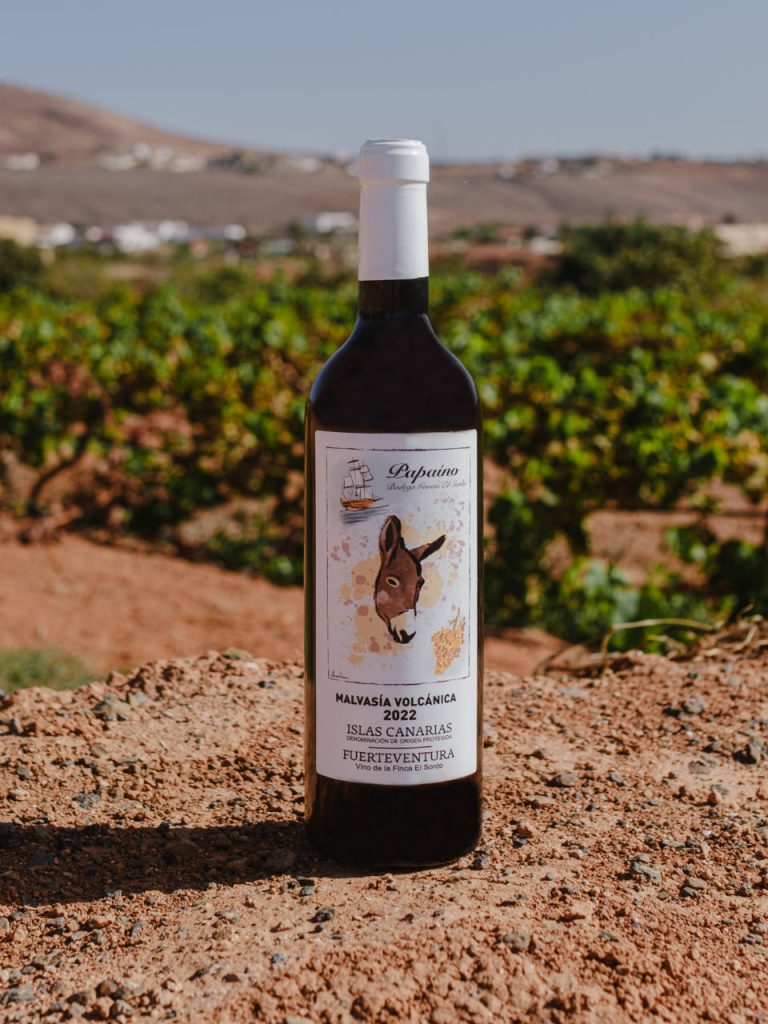
PAPAÍNO MALVASÍA VOLCÁNICA
(Bodega Gavías El Sordo)
Climate: With Continental characteristics, warm in summer and cold in winter.
Soil: Soils of clay character.
Varieties: Malvasía Volcánica.
Parcela Finca El Sordo
Puerto Del Rosario (Fuerteventura)
The Finca El Sordo plot is located at the foot of the San Andrés Mountain, a vestige of what was once a volcano, overlooking the Vega de Tetir. In its silence, we encounter the landscape of El Sordo. The predominant grape varieties are Malvasía and Muscat of Alexandria, cultivated in low trellises to avoid the punishment of the prevailing trade winds.
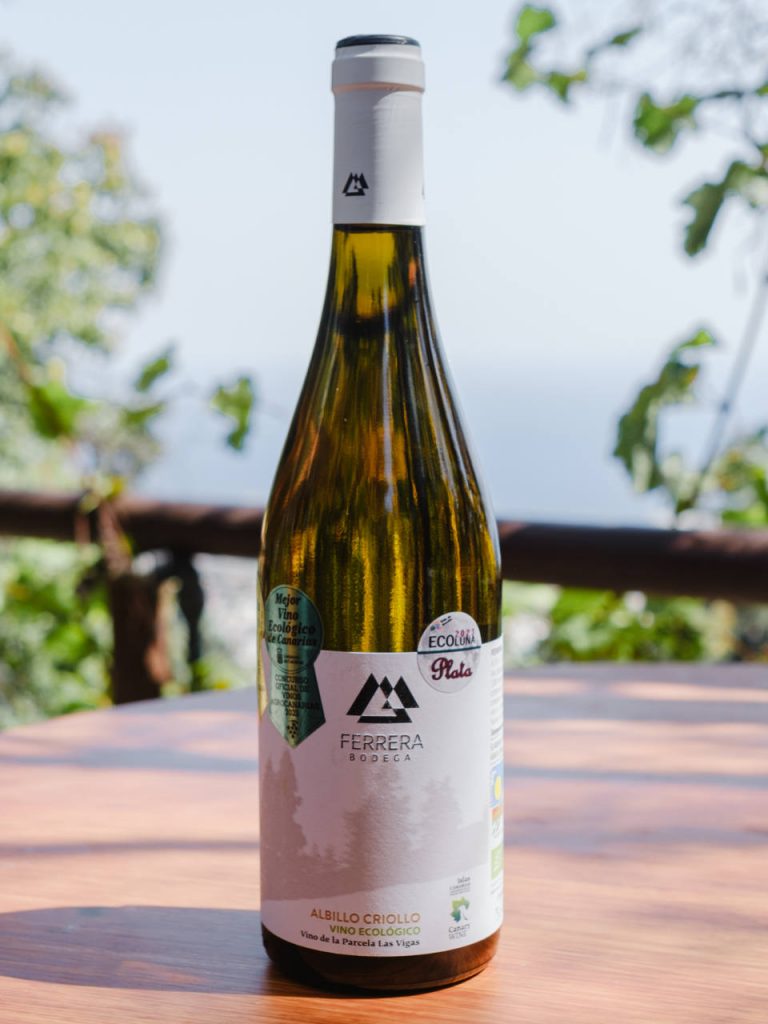
ALBILLO CRIOLLO ECOLÓGICO
(Bodega Ferrera)
Climate: Dry mountainous climate.
Soil: Clay soils with high porosity.
Varieties: Albillo Criollo.
Parcela Las Vigas
Arafo (Tenerife)
At 1,000 meters above sea level, where the Monteverde of Canarian pine stands at the summit and surrounded by tongues of lava from the eruption of the Las Arenas volcano, the Albillo Criollo variety is cultivated, grapes from the oldest vines located at the highest altitude are selected. in the Las Vigas plot, high altitude viticulture where the contrast in temperatures between day and night makes maturation slower, which has an impact on quality and differentiation.
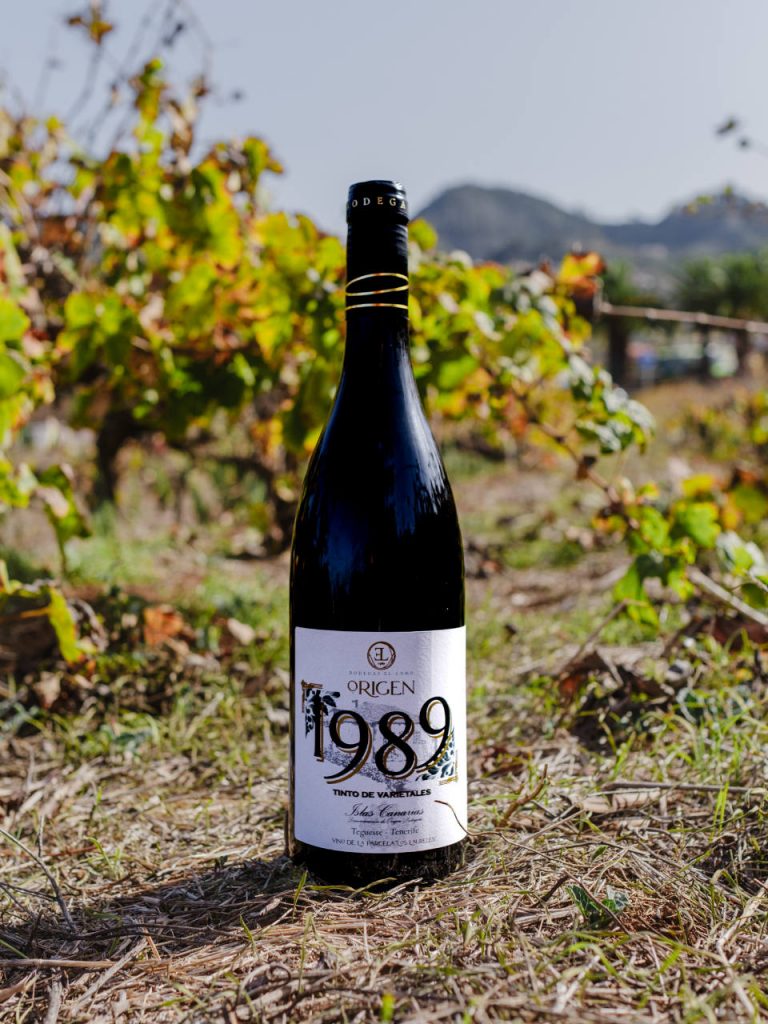
ORIGEN 1989
(Bodega El Lomo)
Climate: Trade winds coming from the North Atlantic.
Soil: Clay and ancient soils, close to the Anaga Massif.
Varieties: Listán Negro, Vijariego Negro y Castellana.
Parcela Los Laureles
Tegueste (Tenerife)
The plot ‘Los Laureles’ is located on the slope of the Tegueste Valley at an altitude of 650 meters. The soil is clayey and therefore one of the oldest on our ‘young island.’ The vines of the varietals that make up the vineyard result from the selection carried out over 80 years ago by the family that owns the plot. The creation of ‘Origen 1989’ is marked by the uniqueness of the vineyard, composed of the Listán Negro, Vijariego Negro, and Castellana grape varieties.




| The management of the DOP ISLAS CANARIAS carried out by AVIBO is partially financed by the Government of the Canary Islands with funds from the expenditure budget of the Instituto Canario de Calidad Agroalimentaria |
 |
| Member of the Spanish Wine Federation |
 |
Copyright 2021 DOP Islas Canarias - Canary Wine - Aviso Legal - Política de Cookies - Política de Privacidad


